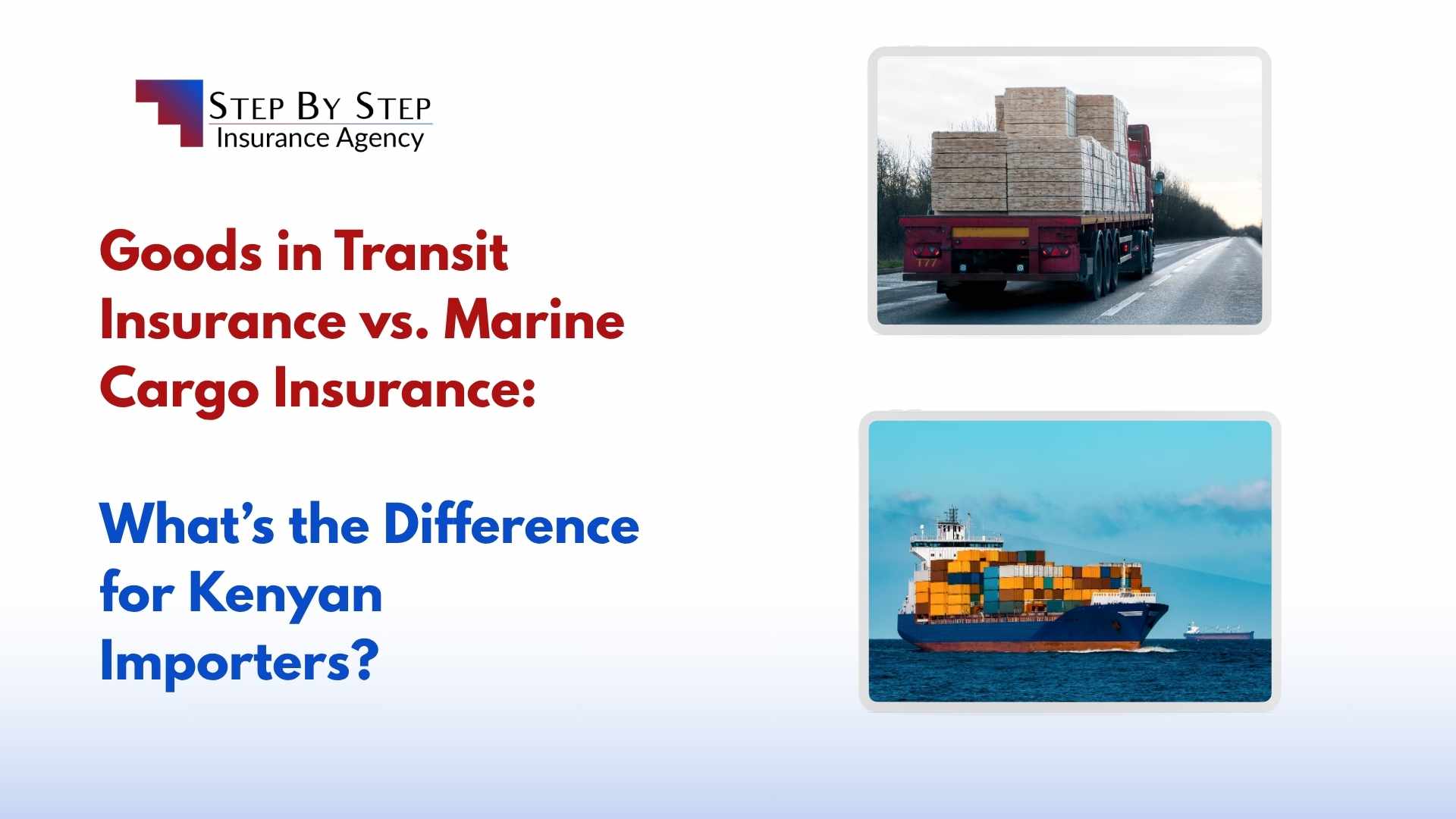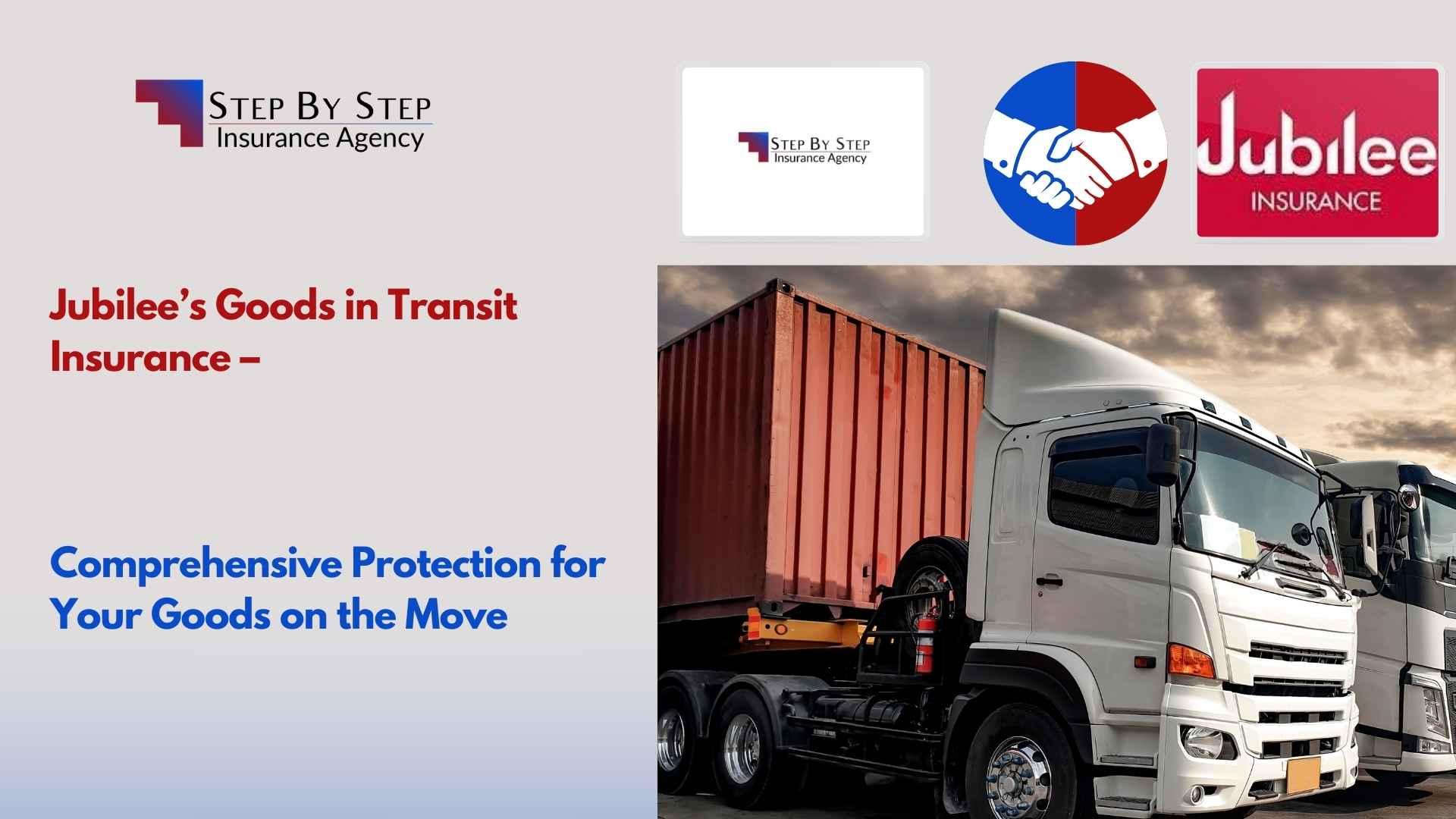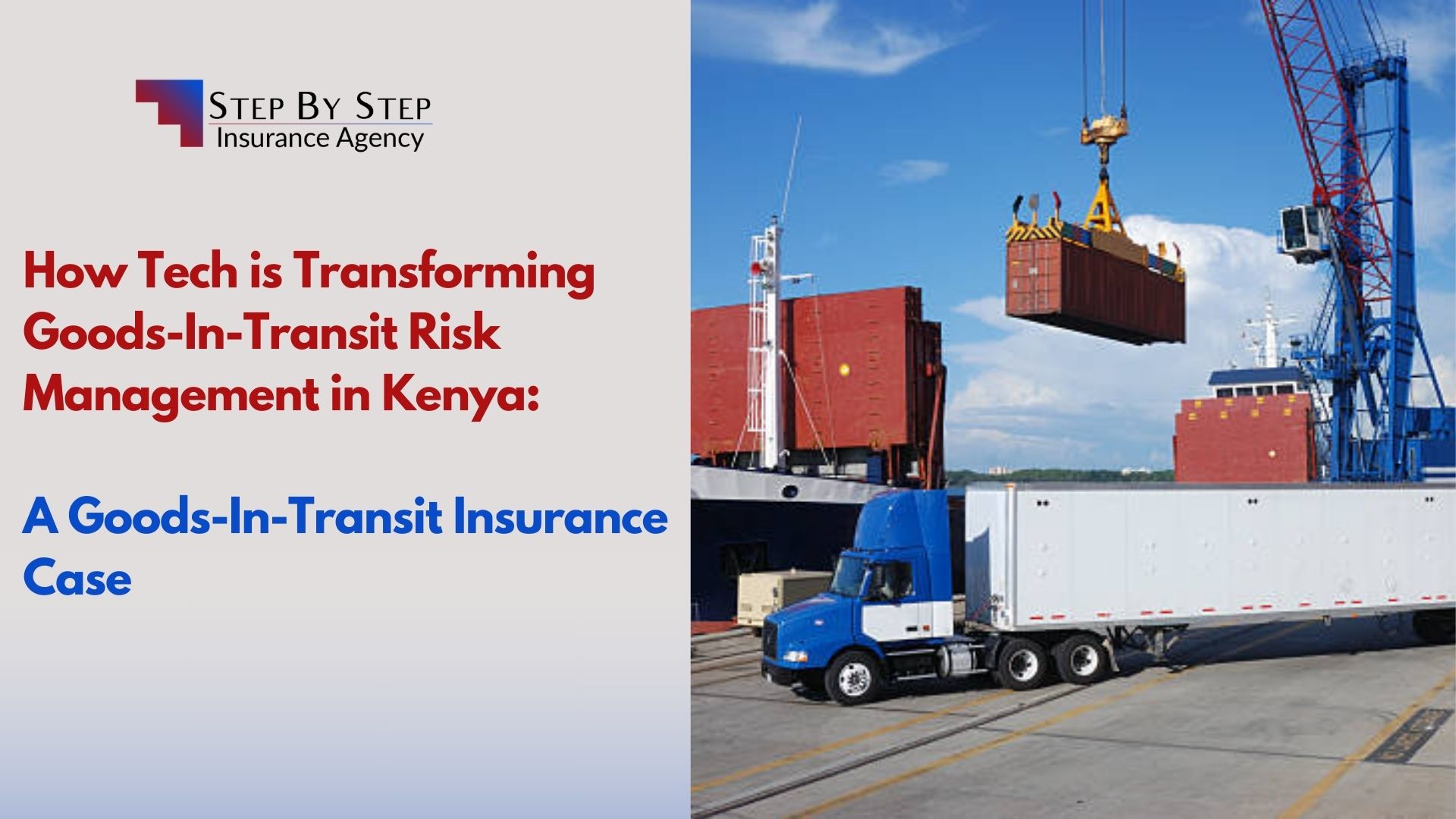The Real Cost of Transporting Goods in Kenya Without Insurance: How GIT Insurance Saves the Day
Introduction
Kenya’s transport industry is the backbone of trade, connecting businesses to suppliers and consumers across the country and beyond. Whether you are moving goods from Mombasa to Nairobi, Kisumu, or even across borders to Uganda or Tanzania, one fact remains—transporting goods comes with significant risks. Every day, countless traders, manufacturers, and logistics companies suffer massive losses due to accidents, theft, or other unforeseen events while their goods are in transit.
Unfortunately, many businesses operate without Goods-In-Transit (GIT) insurance, exposing themselves to financial ruin when disaster strikes. From a truck overturning on the Nairobi-Mombasa highway to cargo being stolen on its way to the upcountry, these incidents result in devastating financial losses. The cost of not having insurance can be so severe that businesses are forced to shut down or incur huge debts to recover.
In this article, we explore the real cost of transporting goods in Kenya without insurance and how Step By Step Insurance Agency provides expert guidance to businesses looking to protect their cargo. We will break down the risks, financial implications, and benefits of GIT insurance, offering valuable insights into why every trader, transporter, and business owner should invest in cargo protection.
Key Takeaways
- Uninsured goods face multiple risks: Accidents, theft, fires, and delays can lead to significant financial losses.
- Financial burden falls on the business owner: Without GIT insurance, businesses must cover cargo losses out of pocket.
- GIT insurance ensures compensation: Protects businesses from unpredictable losses, ensuring stability.
- Step By Step Insurance Agency offers expert solutions: Helping businesses find the best GIT insurance for their needs.
- Securing GIT insurance is a strategic investment: It safeguards business continuity and financial security.
Table of Contents
- Introduction
- The Hidden Risks of Transporting Goods Without Insurance
- The Financial Impact of Uninsured Cargo Losses
- How Goods-In-Transit (GIT) Insurance Protects Your Business
- Step By Step Insurance Agency: Your Trusted Partner in Cargo Protection
- How to Choose the Right GIT Insurance in Kenya
- Conclusion: Protect Your Business, Secure Your Future
The Hidden Risks of Transporting Goods Without Insurance
Every business that relies on the transportation of goods must acknowledge a harsh reality—moving cargo across Kenya comes with numerous risks that can lead to substantial financial losses. Many business owners assume that as long as their goods are well-packaged and securely loaded onto a truck, they are safe. However, this couldn’t be further from the truth. The moment your goods leave the warehouse or shop, they are vulnerable to a variety of uncontrollable dangers that can occur at any point during transit.
Without insurance, any loss or damage to cargo falls squarely on the business owner’s shoulders. This can mean losing thousands, if not millions, of shillings in a single incident. In a country where transportation is essential for business growth, failing to secure your goods with Goods-In-Transit (GIT) insurance is a gamble that could bring down even the most well-established enterprises.
Consider this: What happens if a truck carrying your goods is involved in an accident? What if your shipment is hijacked before it reaches your client? What if extreme weather conditions destroy perishable items during transit? The reality is that businesses cannot afford to ignore these possibilities.
Kenyan roads are busy, often unpredictable, and subject to various risks. Whether you are a manufacturer transporting raw materials, a wholesaler delivering stock to retailers, or an importer moving goods from the port, your cargo is at risk every single day.
In this section, we will delve deep into the most pressing risks associated with transporting goods without insurance. From road accidents and theft to fires, extreme weather, and political disruptions, we will uncover the true cost of these risks and why every business should take proactive measures to mitigate them.
1. Road Accidents: The Unpredictable Threat
Kenyan roads are notorious for accidents, with the National Transport and Safety Authority (NTSA) reporting thousands of crashes annually. Poor road conditions, reckless driving, and mechanical failures contribute to these accidents.
For example, if a truck carrying perishable goods overturns along the Nakuru-Eldoret highway, the cargo may be completely destroyed before it reaches its destination. Without GIT insurance, the business owner suffers a total loss and may struggle to recover financially.
2. Theft and Hijacking: A Costly Nightmare
Cargo theft is a growing problem on Kenyan highways. Criminal gangs target trucks transporting high-value goods such as electronics, textiles, and pharmaceuticals. Even in urban areas, delivery vehicles are vulnerable to break-ins and theft.
Imagine a distributor transporting smartphones worth millions of shillings from Nairobi to Kisumu, only for the truck to be hijacked in Naivasha. Without insurance, the distributor not only loses the goods but also faces supply chain disruptions and cash flow problems.
3. Fire, Weather, and Natural Disasters
Kenya experiences unpredictable weather conditions, with heavy rains often leading to flash floods that damage roads and vehicles. Fires caused by accidents or electrical faults can also destroy entire shipments.
For instance, a fire breakout in a truck transporting FMCG goods along Mombasa Road can lead to complete destruction. Without GIT insurance, the business bears the entire loss, which can be financially crippling.
4. Delays, Strikes, and Political Unrest
Disruptions caused by labor strikes, election-related violence, or roadblocks can prevent goods from reaching their destination on time. This can be especially devastating for perishable goods, whose delays result in massive financial losses.
For example, post-election violence in 2017 saw numerous trucks stuck on major highways, with cargo getting spoiled or stolen. Businesses without GIT insurance had to absorb the entire loss, while insured companies were compensated.
The Financial Impact of Uninsured Cargo Losses
When goods are lost or damaged in transit without insurance, businesses face severe financial consequences, including:
Loss of investment:
The entire cost of the goods is lost, affecting business operations.
Cash flow problems:
Replacing lost goods requires funds, which many businesses may not have readily available.
Loss of customer trust:
Delays or failed deliveries damage business reputation and customer relationships.
Legal liabilities:
In some cases, businesses may still have contractual obligations to deliver goods, leading to legal disputes.
How Goods-In-Transit (GIT) Insurance Protects Your Business
Kenyan businesses that invest in Goods-In-Transit (GIT) insurance benefit from a crucial safety net that protects their operations from unexpected losses. This type of insurance ensures that if anything happens to your goods while in transit, you are compensated for the financial loss, allowing you to continue operations smoothly.
With GIT insurance, businesses enjoy:
1. Compensation for Loss or Damage
GIT insurance ensures that businesses receive financial compensation in case of theft, damage, or loss of goods while in transit. This protects against devastating financial losses.
2. Peace of Mind for Business Owners
With an insurance policy in place, business owners can focus on growth and operations without constantly worrying about potential losses on the road.
3. Affordable Protection for All Businesses
Whether you are a wholesaler, retailer, or transporter, GIT insurance offers flexible and affordable coverage tailored to different business needs.
4. Business Continuity
With compensation for lost goods, businesses can recover quickly and continue operations without financial strain.
Step By Step Insurance Agency: Your Trusted Partner in Cargo Protection
At Step By Step Insurance Agency, we understand the risks involved in transporting goods and the importance of tailored insurance solutions. We work with top underwriters in Kenya to offer the best GIT insurance policies that suit businesses of all sizes. Our team provides expert advice on selecting the right cover, ensuring smooth claims processing, and securing affordable premiums.
How to Choose the Right GIT Insurance in Kenya
Not all GIT insurance covers are the same. Here’s what to consider:
Scope of Coverage:
Does it cover theft, accidents, fire, and other risks?
Type of Goods Covered:
Some policies exclude fragile or high-value goods like electronics.
Claim Process:
Choose an insurer with a fast and transparent claims process.
Premium Costs vs. Risk Exposure:
Cheaper isn’t always better—ensure adequate coverage.
Conclusion: Protect Your Business, Secure Your Future
The real cost of transporting goods without insurance is too high to ignore. A single accident, theft, or delay can lead to irreversible financial damage. Investing in Goods-In-Transit insurance is not just about protecting goods—it’s about securing your business’s future, maintaining customer trust, and ensuring long-term growth.
At Step By Step Insurance Agency, we make insurance simple, accessible, and affordable.
Don’t wait until disaster strikes—secure your cargo today and move your business forward with confidence.
Protect your goods while on the move! Contact Step By Step Insurance Agency for a customized GIT insurance plan that fits your business needs. Call, WhatsApp, or visit us today!
Call: 0729712200 / 0716534192
WhatsApp: 0722888350
Email: info@stepbystepinsurance.co.ke
Website: stepbystepinsurance.co.ke/
#Insurance #GoodsInTransit #BusinessProtection #KenyaTraders #StepByStepInsurance






